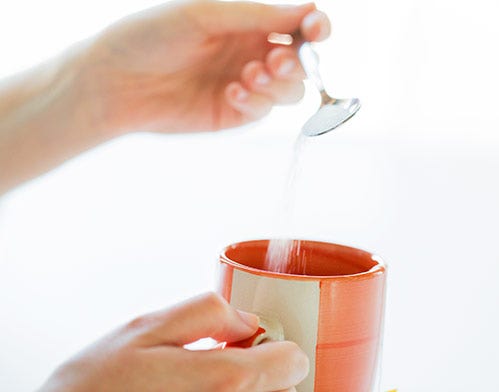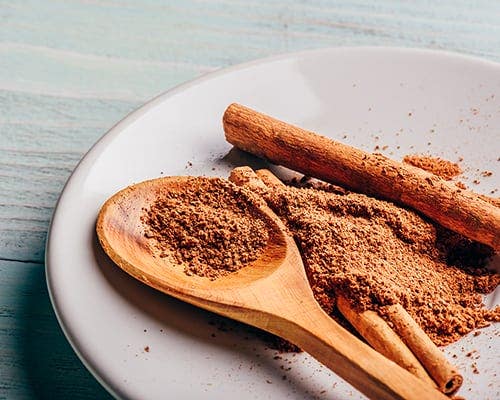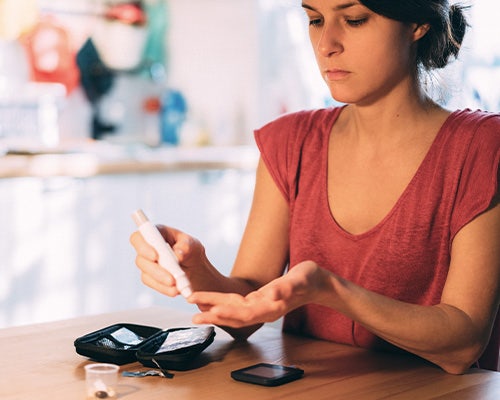Artificial Sweetener, Real Diabetes?
- 8/16/16

It sounds ironic, but one of the world’s most popular non-caloric sweeteners, sucralose, was found to have a diabetes-promoting effect in those who use it—even though it’s been touted as a safe, non-nutritive sweetener for some time now.
A study in the journal Diabetes Care says that the sweetener, which is marketed as a harmless sugar alternative to consumers, including those who are diabetic, can actually help pave the way to diabetes.
Here’s what happened: scientists from the Center for Human Nutrition at the Washington University School of Medicine in St. Louis, Missouri, discovered this after they evaluated the metabolic effects of sucralose on a group of obese participants who did not consume artificial sweeteners at the beginning of the study.
Then each of the participants was given sucralose or control water 10 minutes before having a five-hour glucose tolerance test. At the close of the trial, the participants who took sucralose had noticeable changes in terms of insulin production, circulating insulin levels and in their bodies’ sensitivity to insulin.
In fact, a single dose of the sucralose increased plasma glucose concentrations by 0.6 nanomoles per liter and led to a 20 percent spike in insulin levels, a 22 percent increased peak insulin secretion rate, a 7 percent decrease in insulin clearance and a 23 percent decrease in insulin sensitivity.
Wow.
As if messing with blood sugar were not enough, sucralose is also linked to gastrointestinal upset, migraine headaches and other damage.
For example, a 2011 study published in the Canadian Journal of Gastroenterology noted a link between sucralose consumption and inflammatory bowel disease (IBD), while a 2008 study published in the Journal of Toxicology and Environmental Health found that minimal daily sucralose consumption disrupted the gut flora in test animals.
Interestingly, according to information from GreenMedInfo.com, the discovery of sucralose was accidental, since pesticide researchers came across it after noting that it is a close relative to the banned pesticide DDT.
No wonder it’s wreaking such havoc on health—in everything from blood sugar, digestive health, headaches, in the environment and much more.
The bottom line on the artificial sweetener sucralose? It may set the stage for real diabetes and more.
A study in the journal Diabetes Care says that the sweetener, which is marketed as a harmless sugar alternative to consumers, including those who are diabetic, can actually help pave the way to diabetes.
Here’s what happened: scientists from the Center for Human Nutrition at the Washington University School of Medicine in St. Louis, Missouri, discovered this after they evaluated the metabolic effects of sucralose on a group of obese participants who did not consume artificial sweeteners at the beginning of the study.
Then each of the participants was given sucralose or control water 10 minutes before having a five-hour glucose tolerance test. At the close of the trial, the participants who took sucralose had noticeable changes in terms of insulin production, circulating insulin levels and in their bodies’ sensitivity to insulin.
In fact, a single dose of the sucralose increased plasma glucose concentrations by 0.6 nanomoles per liter and led to a 20 percent spike in insulin levels, a 22 percent increased peak insulin secretion rate, a 7 percent decrease in insulin clearance and a 23 percent decrease in insulin sensitivity.
Wow.
As if messing with blood sugar were not enough, sucralose is also linked to gastrointestinal upset, migraine headaches and other damage.
For example, a 2011 study published in the Canadian Journal of Gastroenterology noted a link between sucralose consumption and inflammatory bowel disease (IBD), while a 2008 study published in the Journal of Toxicology and Environmental Health found that minimal daily sucralose consumption disrupted the gut flora in test animals.
Interestingly, according to information from GreenMedInfo.com, the discovery of sucralose was accidental, since pesticide researchers came across it after noting that it is a close relative to the banned pesticide DDT.
No wonder it’s wreaking such havoc on health—in everything from blood sugar, digestive health, headaches, in the environment and much more.
The bottom line on the artificial sweetener sucralose? It may set the stage for real diabetes and more.





